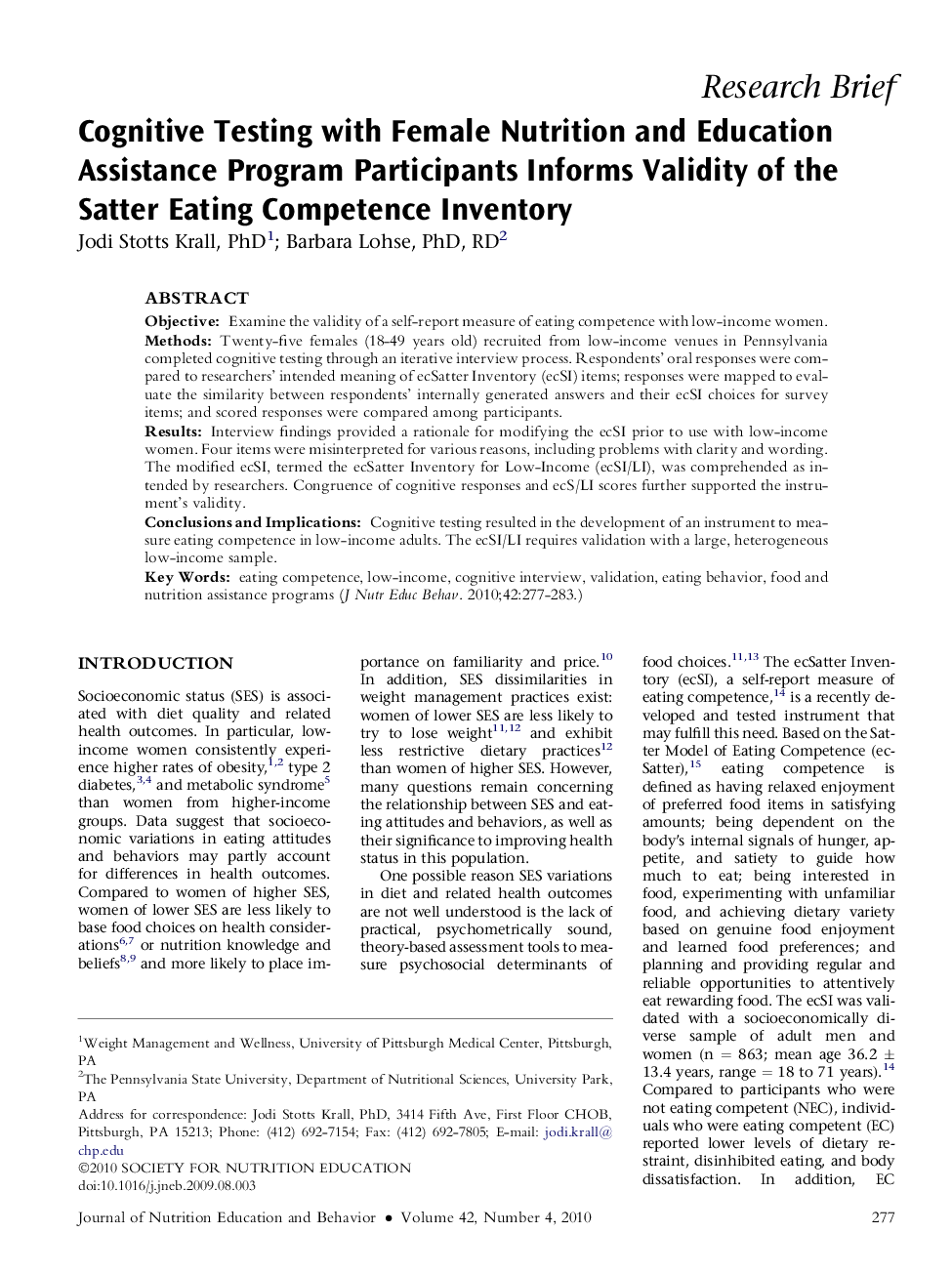| Article ID | Journal | Published Year | Pages | File Type |
|---|---|---|---|---|
| 361960 | Journal of Nutrition Education and Behavior | 2010 | 7 Pages |
ObjectiveExamine the validity of a self-report measure of eating competence with low-income women.MethodsTwenty-five females (18-49 years old) recruited from low-income venues in Pennsylvania completed cognitive testing through an iterative interview process. Respondents' oral responses were compared to researchers' intended meaning of ecSatter Inventory (ecSI) items; responses were mapped to evaluate the similarity between respondents' internally generated answers and their ecSI choices for survey items; and scored responses were compared among participants.ResultsInterview findings provided a rationale for modifying the ecSI prior to use with low-income women. Four items were misinterpreted for various reasons, including problems with clarity and wording. The modified ecSI, termed the ecSatter Inventory for Low-Income (ecSI/LI), was comprehended as intended by researchers. Congruence of cognitive responses and ecS/LI scores further supported the instrument's validity.Conclusions and ImplicationsCognitive testing resulted in the development of an instrument to measure eating competence in low-income adults. The ecSI/LI requires validation with a large, heterogeneous low-income sample.
